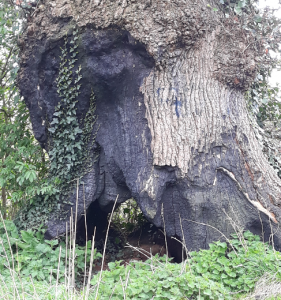“I’d choose wisdom!”
We were young teenagers and, as teens frequently do, we were asking each other what we would ask for if we could have three wishes granted. (My memory is that we had recently seen the Disney version of Aladin – and we were captivated by Robin Williams’ portrayal of the Genie.) My friends all said they’d wish for billions of dollars, or the like. When I stated my wish would be for wisdom they looked at me like I had ten heads.
I had recently become a Christian and I had taken seriously my spiritual mentor’s encouragement to read a Psalm, a Proverb and a New Testament passage every day. In doing so, I had become fascinated with the benefits of having, and pursuing, wisdom. My immediate thought when my friend asked this question about the wishes was, if I get wisdom first, I’d then know the best way to use the second two wishes.
This is often the way of life. If we have wisdom, we are better positioned to make good choices. Unfortunately, even ‘wise’ people can make poor decisions. But, generally, wisdom brings understanding, an ability to see through the conundrum at the surface in order to address the matters at the heart of a situation.
Wisdom is different from knowledge. I smile when I hear the ‘modern proverb’ that says,
“By knowledge we understand that a tomato is a fruit,
By wisdom we know not to slice a tomato into our breakfast cereal.”
Wisdom rarely fits into a particular mould. Even though one may have wisdom, determining a course of action requires that the wise person understands the context. Wisdom may require action in a given situation at one time, but at another time, in what appears to be the very same situation, wisdom may require a different action. This often-forgotten principle is clearly stated in Proverbs 26:4-5.
“Do not answer a fool according to his folly, or you will be like him yourself.
Answer a fool according to his folly, or he will be wise in his own eyes.”
I have spoken to many who appear troubled by this seeming contradiction within Scripture. How can the Word of God so blatantly disagree with itself? But, these two verses are not a contradiction. Rather, they are an instruction to look beyond the issues at the surface, to get within the context of the one who is speaking in order to understand the ‘folly’ that is being espoused. The challenge for the wise person, is to attempt to identify, without judgement or accusation, the motives and intentions of the one speaking before deciding if wisdom compels one to enter the discussion. Clearly, it is possible that a decision to enter the conversation could reveal substance as folly-filled as the first speaker. In another context, with different understanding, assessment and clarity, it may be essential to enter the conversation.
In today’s world we will have multiple opportunities to learn how to apply this principle. We are faced with a myriad of opinions, perspectives and points of view that are not always helpful or beneficial. Some are complete folly. Some are spoken by people who genuinely desire and intend to do good but have become confused. Regardless of who speaks or what is said, before we dive into the conversation, it will be beneficial for us to consider the principles within Proverbs 26:4-5.
In doing so, we will do well to remember that this principle is built on the assumption that in all circumstances we’re seeking to display the heart of God and learning to speak with grace, truth, gentleness and respect (1 Pt 3:15) and avoiding the temptation to speak curses over someone made in God’s image (Jms 3:9). For not only is it kindness that leads people to change (Rom 2:4), but it is through the Church that God will display his multi-faceted wisdom (Eph 3:10).

